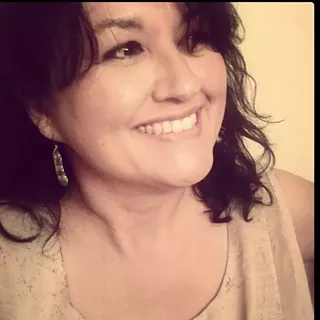What was expected to be a three-part appeals hearing to examine whether the Tucson Unified School District's Mexican-American studies classes violate the state's anti-ethnic-studies law will go into a fourth day.
Testimony is slated to resume on Monday, Oct. 17.
Lisa Anne Smith, an attorney with DeConcini McDonald Yetwin and Lacy who is representing TUSD, told the Tucson Weekly that Office of Administrative Hearings Judge Lewis D. Kowal extended the hearing to accommodate a state expert witness.
Most likely, closing arguments will be made in writing, although a final decision hasn't been made, Smith said.
The TUSD board launched the appeal in June, shortly after state Superintendent of Education John Huppenthal found that the Mexican-American studies classes violated the state's new law. He disregarded an independent audit, commissioned by his office, that concluded the Mexican-American studies classes do not violate the law and help students to succeed in school.
During the third hearing on Wednesday, Sept. 14, Kowal told attorneys that he expects to issue his decision by the end of October.
Smith confirmed that even if Kowal were to declare that TUSD is not in violation of the anti-ethnic-studies law, that wouldn't mean the battle is over. The administrative-hearings code allows the final decision to go back to the state—which, in this case, means Huppenthal. If TUSD officials want to take it further, Smith said, the school district would need to take the case to Superior Court.
The state's expert witness expected to testify on Oct. 17 is University of Arkansas professor Sandra Stotsky, author of Losing Our Language: How Multicultural Classroom Instruction Is Undermining Our Children's Ability to Read, Write, and Reason.
Smith said the state may hope that Stotsky's testimony can counter a witness she called during the Sept. 14 hearing: Jeffrey Milem, the head of the UA Educational Policy Studies and Practice department, and director of the Center for the Study of Higher Education.
Milem said he studies the value of ethnic-studies classes on academics and on recognizing the value of race in teaching. The witness testified that he is familiar with the TUSD program from working on the Institute for Transformative Education summer conference with TUSD Mexican-American studies directors, educators and students.
One of the state's two attorneys, Bryan Murphy, of Burch and Cracchiolo, asked Milem if he socially knows Sean Arce, the Mexican-American studies director, and Augustine Romero, TUSD's director of student equity, since he is linked to them on Facebook. Milem responded that he only knows them through interactions via the Institute of Transformative Education.
Milem testified that he and other UA colleagues approached TUSD Superintendent John Pedicone, who used to work at the UA College of Education, to offer data analysis and to help open communications between administrators and ethnic-studies teachers. Pedicone didn't take them up on their offer, although Milem confirmed that they do have a meeting with Pedicone scheduled in a couple of weeks.
Milem said there is value in ethnic studies, because it "creates space for new ideas and for students to get exposed to literature and history they do not normally get" in traditional education settings. The exposure to these new ideas is linked to improved cognitive-development and critical-thinking skills, he said.
When asked by Smith why it was important to promote those improved skills, Milem responded that they are essential for students to be successful in college. Ethnic-studies classes help two groups of students succeed, Milem said: Students of color are exposed for the first time to people like themselves, reflected in history and literature, which can awaken a sense of self. For other students, ethnic-studies classes often engage them for the first time in a high level of diversity, which is important, "because we are a highly segregated society," he said.
Other testimony that day came from Ochoa Magnet Elementary School teacher Julie Elvick-Mejia, who testified via phone from her Tucson classroom. Elvick-Mejia said she has recently worked with Mexican-American studies teacher Norma Gonzalez to bring ethnic-studies lessons into her Ochoa classroom.
One project that was particularly exciting for her students and their families was a poetry project called "I Come From," during which students bring in family photos and write poems about their families.
"I am actually Norwegian," Elvick-Mejia said. She gave her family copies of the poems she made with her students about her own family. "It's a beautiful way to acknowledge who you are and where you come from."
Murphy asked her if the Institute for Transformative Education and the ethnic-studies program promote race resentment. She responded no, and said that if they did, she would not try to go to the summer program every year.
"As an Anglo person, I recognize that my experience is different than what a person of color experiences," Elvick-Mejia said. "(My students) know I am not Mexican American, and they have a lot of love for me. It would be counter-intuitive for me to teach otherwise."
The third hearing also included testimony from Arce and Abel Morado, Tucson Magnet High School's principal. It concluded with testimony from TUSD interim deputy superintendent Maria Menconi, who is responsible for curriculum development, instruction and professional development.
Menconi testified that when she began her job in January, she started looking at the Mexican-American studies curriculum right away because of the controversy. She said she discovered holes and gaps in the curriculum, but that TUSD also has curriculum issues in other departments, such as math and language arts.
The state's attorney asked Menconi if she believes it's appropriate for middle school students to see pictures of lynchings and other atrocities during ethnic-studies lessons.
"Yes," she answered. "In fact, they are laid out in (state) standards to teach as part of history."
Menconi also told state attorney Melissa Iyer that she does not believe the classes promote ethnic solidarity or racial resentment.
Mari Herreras is "friends" on Facebook with Sean Arce, Augustine Romero and TUSD governing board member Mark Stegeman, but has never done anything with them socially.











